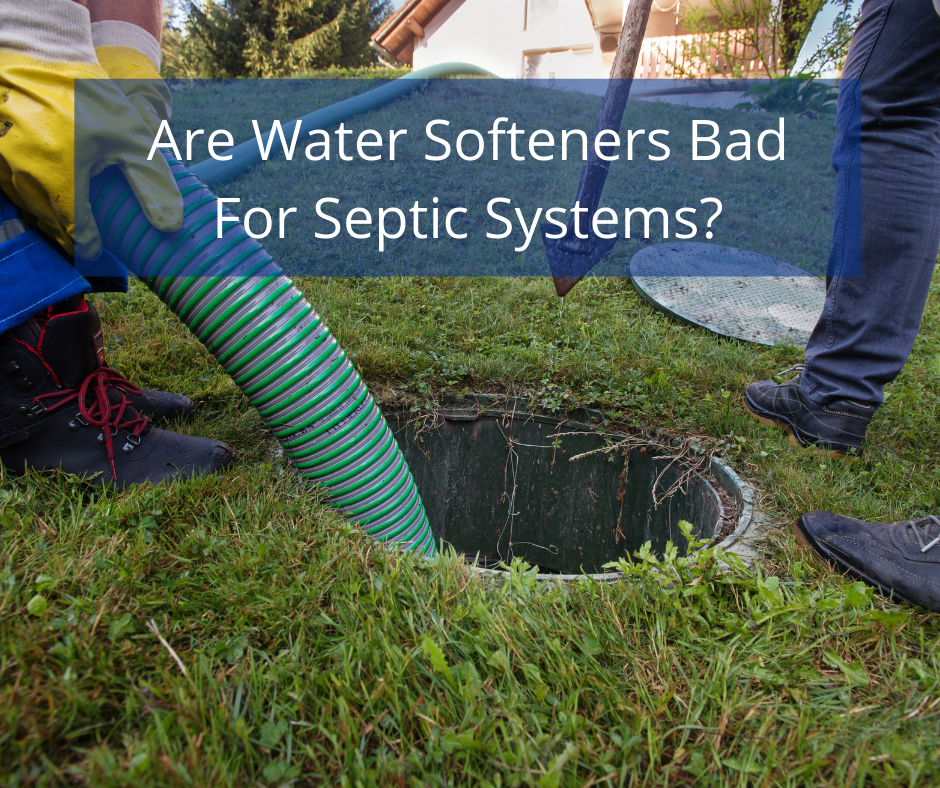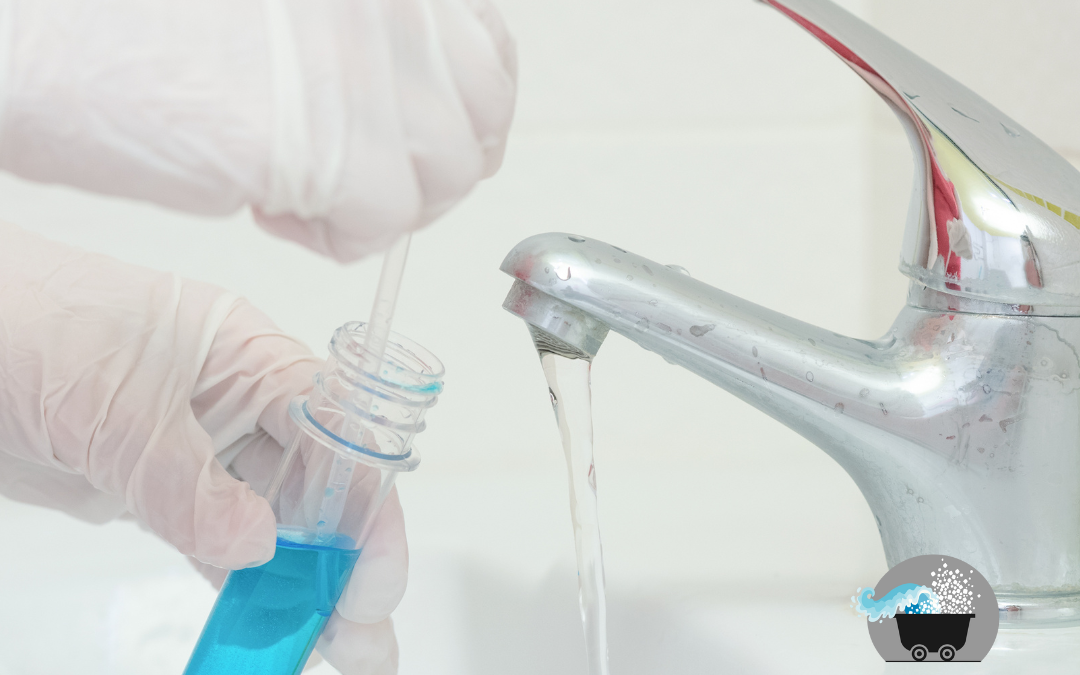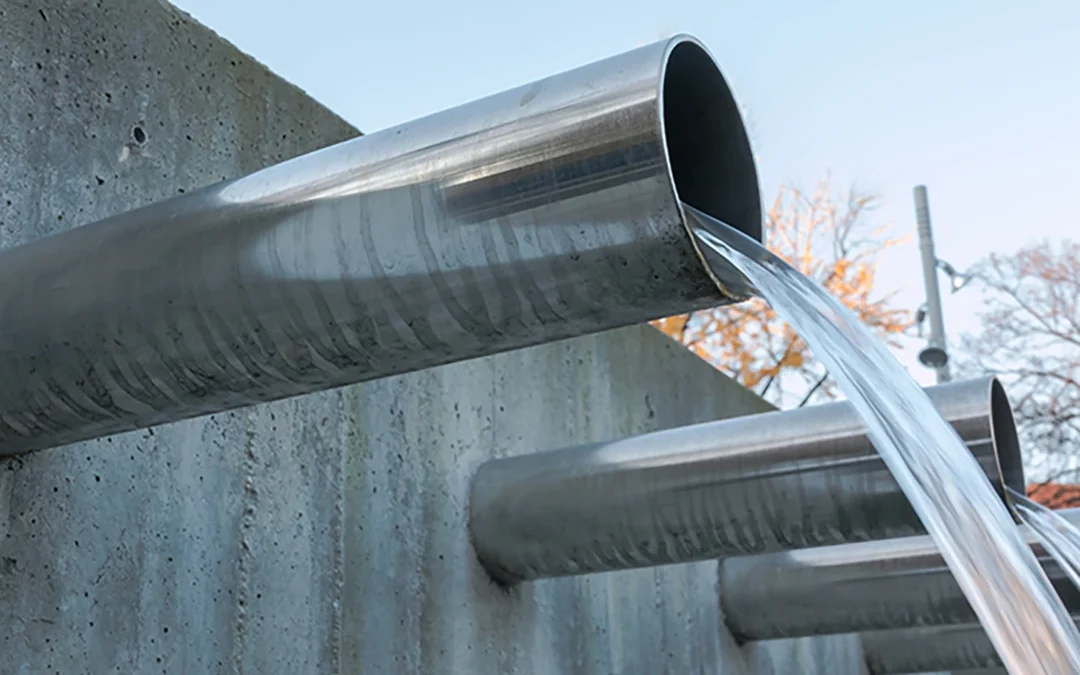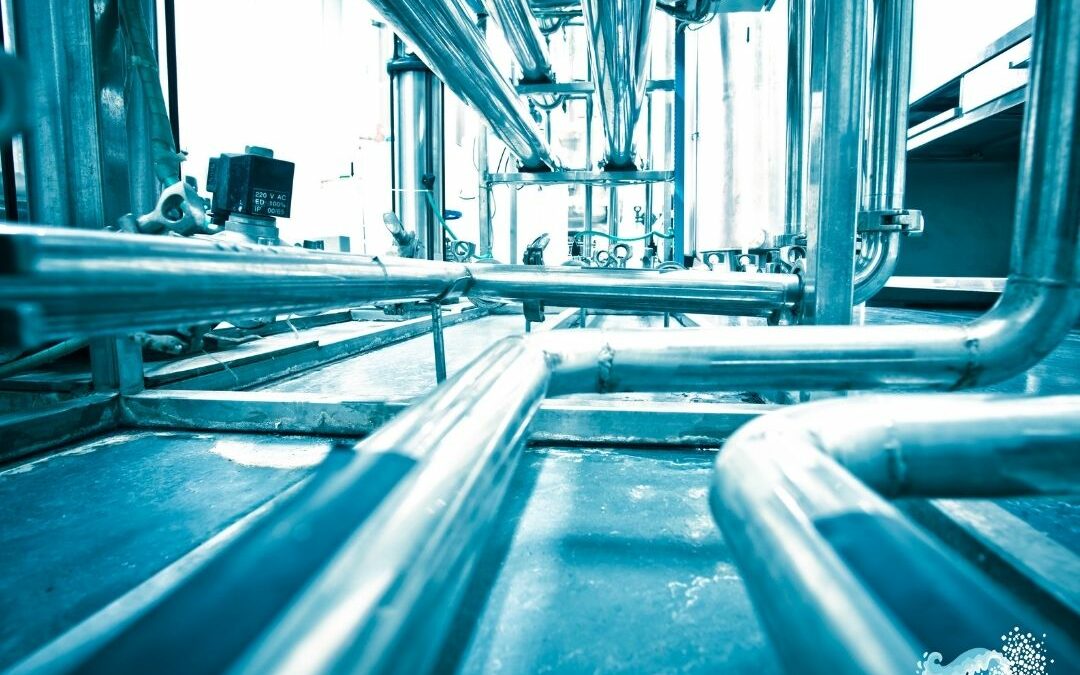Many consumers ask the question, “are water softeners bad for septic systems?” … not knowing that this is actually a controversial question. While some sources say that they are, others claim they are not. Ultimately, once you have the right information, you can decide for yourself. Let’s take a look at how water softeners and septic systems each work independently and then how one can be affected by the other.
How do septic systems work?
Before we get into details about water softeners, let’s look at how septic systems operate. Most systems consist of three major parts: a septic tank, distribution box (otherwise known as a D-box), and leach field. Of course, these parts are all connected by pipes.
Waste water flows from your home and into the septic tank. Here, heavier solids settle to the bottom and lighter ones float to the top to form a scum layer. The fluid between the two layers flows out to the D-box where it is distributed through leach field pipes into different areas of the ground. The water is then further filtered through gravel and soil.
Why use a water softener?
Have you ever noticed water spots on your dishes or shower doors? These could be the result of hard water flowing through your household. This is water that simply has higher levels of calcium and magnesium in it. Since these minerals build up on laundry, surfaces, fixtures, and pretty much anything they touch, hard water often means more expense in terms of cleaning supplies. To combat this, many homeowners choose to install a water softener.
Water softeners use an ion exchange process to remove the excess calcium and magnesium from the water and replace it with sodium. The resulting water is considered ‘soft’ and is much more friendly to people, pets, and household fixtures and appliances.
Water softeners and septic tanks
The problem with water softeners and septic tanks arises during the regeneration process. This is when a large amount of highly concentrated salty brine is flushed through the water softener. Its purpose is to clean the calcium and magnesium covered resin beads inside. This water then flows out into the septic tank.
Some say that this large volume of water disturbs the scum layer at the top of the tank, causing more solids to go out into the leach field. Others say that the problem lies in the salty brine itself – some studies have shown that salt pollution of soil can impact its permeability, something that could cause a slow-flowing drain field.
How can water softeners and septic systems work together?
Whether water softeners are bad for septic systems or not, it certainly doesn’t hurt to do what you can to help the environment. And, that’s where we offer hope. The Salt Miner is a retrofit add-on that can be installed on any water softener. It works by ‘mining’ the salt out of the brine before it gets released into the septic system. The salt is then collected where it can be disposed of properly or even recycled.
Ready to see how you can enjoy all the benefits of soft water and still be kind to the environment and your septic system? Contact us today!





